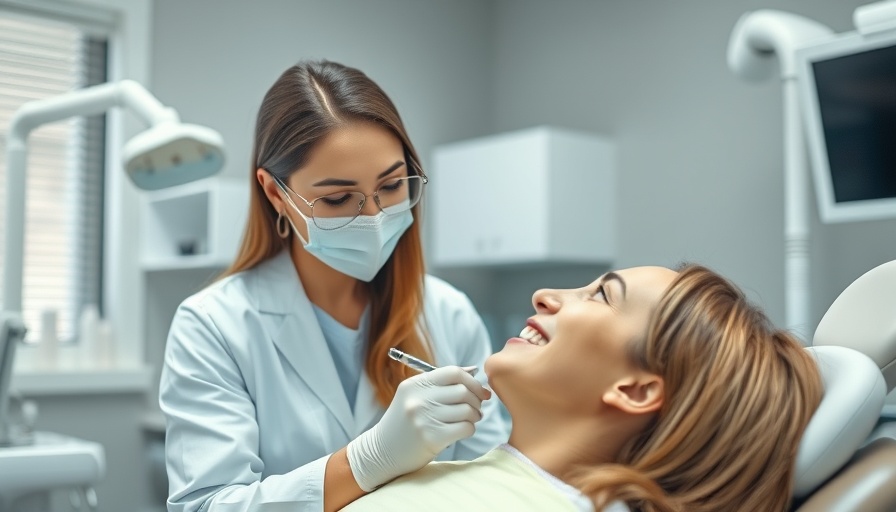
Every Dental Visit Matters: Why Routine Cleanings Are Essential for Oral Hygiene
For dental hygienists, one of the most important aspects of their job is to educate patients on maintaining optimal oral hygiene. Regular visits to the dentist not only help to prevent cavities and gum disease but can also alert patients to problems that may not yet be visible or symptomatic. As emphasized in the video titled All Dental Hygienists Need to Do This!, taking proactive steps in dental care plays a crucial role in overall health.
The video All Dental Hygienists Need to Do This! emphasizes the critical role of routine dental care, inspiring a deeper exploration of effective oral hygiene practices.
The Importance of Flossing Techniques
One of the simplest yet most powerful dental tips is to practice effective flossing techniques. Flossing aids in removing plaque and food particles lodged between teeth that brushing alone often misses. Consider incorporating several techniques: traditional string floss, floss picks, or even water flossers. Consistency is key—research shows that regular flossing can significantly reduce the risk of gum disease.
Understanding Your Dental Health Products
When it comes to oral care, choosing the right dental products can be overwhelming. From toothbrushes to toothpaste and mouthwashes, understanding what to look for can elevate your dental hygiene routine. Opt for fluoride toothpaste, which strengthens tooth enamel and aids in cavity prevention. For those with sensitive teeth, desensitizing toothpaste can offer relief and comfort.
Cavity Prevention: The Role of Nutrition in Dental Health
A healthy mouth starts with a healthy diet. Foods high in sugar and acid can damage tooth enamel and lead to cavities. Include calcium-rich foods like yogurt and cheese, along with crunchy fruits and vegetables that help cleanse the teeth. Drinking plenty of water is also essential for rinsing away food particles and bacteria.
Best Practices for Dental Emergencies
Dental emergencies can occur unexpectedly; knowing what to do can save a tooth. Conditions such as a chipped tooth, abscess, or severe dental pain require immediate action. Always consult a dentist if you experience any traumatic incidents. Having emergency dental care contacts readily available ensures quick responses, reducing the risk of severe damage.
How Pediatric Dentistry Sets the Foundation for Future Oral Health
Pediatric dentistry is vital to establishing good oral hygiene habits in children. Early education about brushing, flossing, and regular dental visits significantly influences long-term dental health. Dental hygienists often work closely with young patients to ease anxieties surrounding dental care and promote a lifetime of healthy habits.
In summary, the insights highlighted in All Dental Hygienists Need to Do This! present an undeniable case for maintaining strong dental hygiene practices. Regular dental checkups and implementing sound oral care routines can prevent complications such as tooth extractions or the need for dental implants down the line. With knowledge and commitment, everyone can take charge of their dental health journey.
If you're looking to improve your dental care routine, consider engaging with dental professionals who can guide you with tailored advice and education. Don't wait for dental problems to arise—invest in your smile today!
 Add Row
Add Row  Add
Add 




 Add Row
Add Row  Add
Add 

Write A Comment